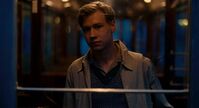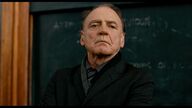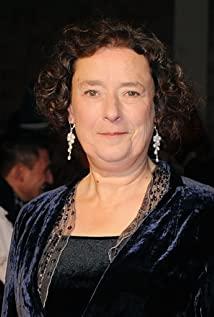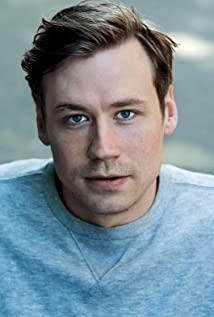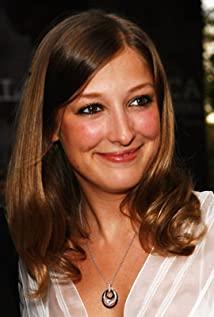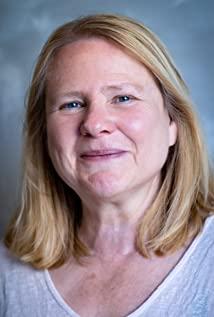I looked at his young and beautiful face like poetry in the sunset and smiled softly.
How could I not believe, if not believe how I explained that he saw me from the crowd, I chose him from the crowd.
In the early morning of the early spring of 2009, a 27-year-old man asked me, Do you believe in destiny?
I thought of his lonely expression when he lit a cigarette in a foreign hotel, and smiled stubbornly
How could I believe it, if I believed I should have lost it long ago All the fantasies made the homeless people on the streets violently die in a soulful sense.
Instead of continuing to believe in love, believe in life. Believe in flowers, believe in the morning.
I read "The Reader."
No links to any network, no review articles.
But even if I don't read it, I know that the ideological elites who are always at the forefront must have already written countless articles. It will involve a series of concepts such as World War II, Nazis, people, historical memory and so on. I'm not a wise man, I'll never say those words, I watched this movie because I saw a detail many years ago that Hannah risked her life in prison by refusing to admit that she couldn't write. This detail has been ingrained in my mind, where it has been entrenched for years, like a bird with its eyes open in the dark.
In fact, there is no need to involve so many propositions. The reason is very simple. Fate will tell a person to say what should be said and do what should be done.
Permanent elites at the top of society will never be able to understand Hannah's pain if they don't lean down.
Didn't you feel bad when Hannah first appeared on camera?
A beautiful woman, who sees a strange child in trouble, hugs him and tells him, it's all right, kid,
but the expression on her face is so numb, so cold.
Shouldn't it be for such an expression to appear like this Do you feel guilty about being a beautiful woman?
What had life made her happen?
Don't tell me some people are born numb, don't tell me they fall numb because they're not loving and tenacious enough.
She would do the same thing every day on the tram in her uniform. She had to live in a cramped room and carry buckets of briquettes upstairs by herself.
Is that 16-year-old boy her destiny?
He may not always regard her as a goddess, he may not always need a woman who is 15 years older than him, and he may not marry her when he loves her.
Love her like a man and not like a child.
So you see, fate doesn't offer a solution.
She is just a single woman with a beautiful face, no family or friends, who was left on an island.
Whichever driftwood was drifted by fate, she grabbed it, and there was no choice and nothing to choose.
Because life is bad enough, she is used to this kind of bad that has not changed over the years.
No choice can make what is now bad worse or better. So it doesn't matter what you do.
I am not advocating a theory that you can give up your conscience if you live a bad life, and you can lose your judgment if you are lonely.
This is not what I meant to express. I just wanted to say that not every Hannah has the opportunity and right to think like the elite.
In the film, Mike's teacher at law school confronts him, "It doesn't matter what we feel, it doesn't matter at all. It matters what we do. If someone like you can't get it from someone like me What's the point of learning what?"
When I heard this dialogue, I really understood something I had seen before, saying that artists are the conscience of society. Not only artists, but also all those who truly hold the truth, hold the right to speak, and hold even just the knowledge and ability to express. These people can never back down and be silent. If there are really any social elites and mainstays, I think this is where they play their role, to solve those lowly people, those who have been placed at the bottom of society by fate, in order to maintain a little dignity, such as being able to write, so that A person who would rather die for the elites' insignificant dignity, speak up and create in this society for them, not just himself.
Instead of sitting in a cafe and showing how much you know all kinds of coffee, discussing how to eat caviar most authentically, what a new take on a late philosopher's theory. No, definitely not these.
When I was very young, I saw such a plot in a novel. The story took place in Russia. I was too young to remember the title of the book. There was a child from a poor family who lost a kind of Tickets are probably the same concept as the food stamps in our planned economy period. His family was starving because of this, and he jumped into a river in great fear. I probably remember that he was rescued, and the person who rescued him hugged the child and cried, "The children of our country are going to jump into the river for a ticket, and our dictionary doesn't even have the word for this ticket. , the children of our country have to jump into the river because of a word that is not in the dictionary, what the hell is this world?"
Who is making the rules of a society, who is responsible for implementing them, and who is responsible in the end ? Who will be punished?
As for the relationship between Mike and Hannah. Not so moving. Mike's power is too weak. Hannah's fate is too humble.
There is not enough power for them to save each other once in the name of love.
She betrayed him once, ten years ago, she left without saying goodbye. She didn't even think she needed to tell him that she was leaving.
Subconsciously, she did not regard him as love at all, as an equal person who faced life with her. They are separate islands.
Ten years later, he betrayed her once. He didn't stand up for her.
If you've ever experienced that kind of silent and abrupt parting, you know that he can't face her anymore, not to mention that a young promising law student doesn't need to build a good reputation at this time.
There is a scene in particular, when the writer stated that Hannah took the little girl back to the dormitory to read for herself, Mike's face began to twitch in pain, he always thought he loved her, and he always thought she loved him too.
Ten years later he understood that he was just a prop in her life, like those little girls. The premise of that love is destroyed, and I guess that is the most fundamental reason why he can't stand up, he can't face the humiliation he has received.
Later, he sent the tape to her, and he recorded it in his room with so much enthusiasm, so happy that
she received the tape, and she was so delighted that she began to read, learn to read, and even practice writing.
But what's the use of all this? But it's just after the aftermath, it's useless at all.
My view has always been to be in season. That is, to have something when I need it: to have a beautiful dress and a flawless smile when I was young and beautiful. When I am confused, confused and wronged, I have friends to hug me and make me strong again.
Not when the dust settles, the damn thing is dead, the thing that should be gone is gone, the things that are cherished, kept, and loved have all been destroyed by life, you come to sit in front
of me to tell me what? continue to live? What's the point of that?
Since I didn't choose to die at the time of doom, I no longer need to work hard to find the things that lure me to live for the rest of my life.
As I said earlier, people who have experienced parting can easily smell death in the air. When Mike said goodbye to Hannah in prison, I knew that Hannah would not be able to leave with him.
She said, TAKE CARE, KID,
I have loved Hannah since the Revolutionary Road. Forgive me, I am too lazy to remember those tedious foreign names.
Her face is filled with a rare tenderness, and most of the time you will see her determined and masculine expression, even her eyebrows are cold and stubborn. Especially among readers, it is rare to see her tenderness. You only have to look at Hannah's helpless pain and helplessness and Zhang Huang's bewildered expression when Mike turned to leave the prison, you will know that she can't survive any longer. The power of wanting to live will not be with you forever, there will always be times when
you ca n't stand it and there will always be times when you can no longer face a lonely, absurd and cruel world.
Hannah and Mike's teacher said the same thing, it does't matter what i fell. it does't matter what i think. The dead are still dead. But the moods of the two are very different. As individuals in history, we are all just a tiny part. However, Mike's teacher thinks that his feelings and thoughts are not important because he has a huge belief supporting him and his responsible attitude towards the truth. The reason why he said so An objective condition is that he is a law professor who has a voice. If he is penniless, when he says these words, we experience the same helplessness as Hannah's blue eyes reveal.
The world is on its own, and as a humble individual there is nothing you can do.
In fact, what moved me the most in the whole film was that when Mike went to meet the female writer, the
female writer said, people often ask me what you learned in the concentration camp. NOTHING.
There's a concentration camp where you can't learn anything, what do you think that is, a university? Obviously, there is nothing there.
I wept bitterly over the lines and every word of hatred that the female writer said.
I have always believed that only a good life can be called life, and only a good person can be called a human being. You keep accusing me of being too harsh and demanding too much. Said I was asking for trouble. Whenever you criticize me like this, I can only smile bitterly.
Living is the same as living, and where there is air, anyone can live.
It's just that life will become so humble that you don't want to face it.
View more about The Reader reviews





